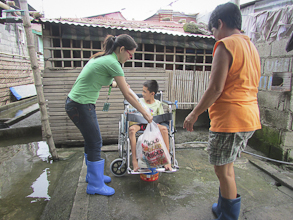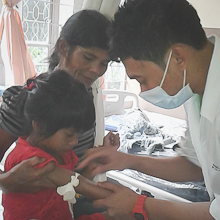 About
Projects
Stories
Work with Us
Donate
About
Projects
Stories
Work with Us
Donate
 ☰
☰
Every child has the right to development and protection. GNIP promotes education through the provisions of quality early-childhood education and various educational programs. GNIP also implements a comprehensive child protection program that will strengthen government strategies and will provide direct intervention to children who are most vulnerable to violence, exploitation, and abuse.
San Isidro CDP. Southville CDP. Gigmoto CDP. Prieto CDP. Diaz CDP. Pugad-Tibaguin CDP. Sagrada Familia CDP

From 75 scholars in 2012 to 171 the following year, the scholarship program of GNIP is considered as the organization’s biggest accomplishment under the Education Sector in 2013. A total of 82 academic scholars and 89 nonacademic scholars from 13 high schools under seven CDPs were awarded with grants ranging from PHP 2,600 to PHP 10,000. Scholars have to follow the scholarship program’s terms and conditions, which include reaching an academic grade point average of at least 85 percent, having a quarterly attendance rate in school of 90 percent, and their parents’ active involvement in GNIP’s selected community activities.

The academic scholarship is for students with good academic performance, while the nonacademic scholarship is for students belonging to households with incomes below the poverty line, regardless of their academic performance in school, but they must show determination to study.
Good Neighbors International Philippines (GNIP) has launched its first learning center in 2009 and at present maintains the operation of five learning centers in two of its CDP areas—San Isidro CDP and Southville CDP, both located in Rodriguez, Rizal. The learning centers, which offer free educational programs, follow a common curriculum designed by GNIP. On March 21, 2013, 125 beginners and 146 advanced-class students have successfully completed the school year.

A total of 355 children with ages ranging from three to six years old were enrolled in the school year that followed. Of these, 185 attended the beginner classes, and the remaining 170 belonged to the advanced classes. Aside from the provision of learning materials and the maintenance of the learning centers’ physical structure, GNIP also employs teachers and assistant teachers to handle the classes.
The community of San Isidro recognizes the quality of education that the GNIP learning centers are providing as reflected in their increasing enrolment rate. This somehow ensures that children who finished their early childhood education at the learning centers are prepared for primary school.

Learning Centers. Prieto CDP

Parents are not just providers of their children’s needs; they are also the main persons who should protect and promote the rights of their children. This role should be realized by parents and be exercised on a daily basis. The parents effectiveness sessions—attended by 1,314 parents from the Prieto CDP, the Diaz CDP, and GNIP learning centers—tried to reach this objective. The sessions served as initial steps toward transforming parents into primary advocates of child rights and protectors of children from abuse, violence, and exploitation. The sessions have also been effective in making the parents understand the importance of raising their children properly.

Even as society tries to mold the children of today differently, it was emphasized in the sessions that parents should be motivated to make their children value their relationships with God, with their family, and with the community where they belong. The sessions also alloted time to discuss the importance of birth registration. Securing a birth certificate gives a child the right to a name and a nationality, provides him/her access to basic social services and benefits, and makes him/her less vulnerable to exploitation and abuse.